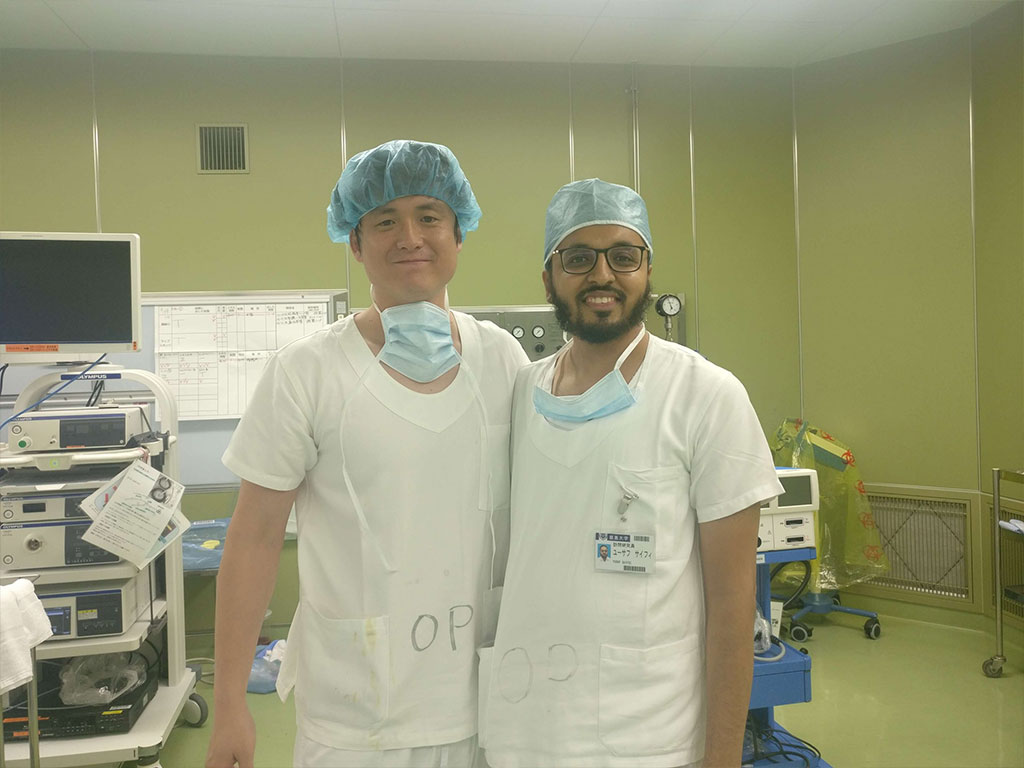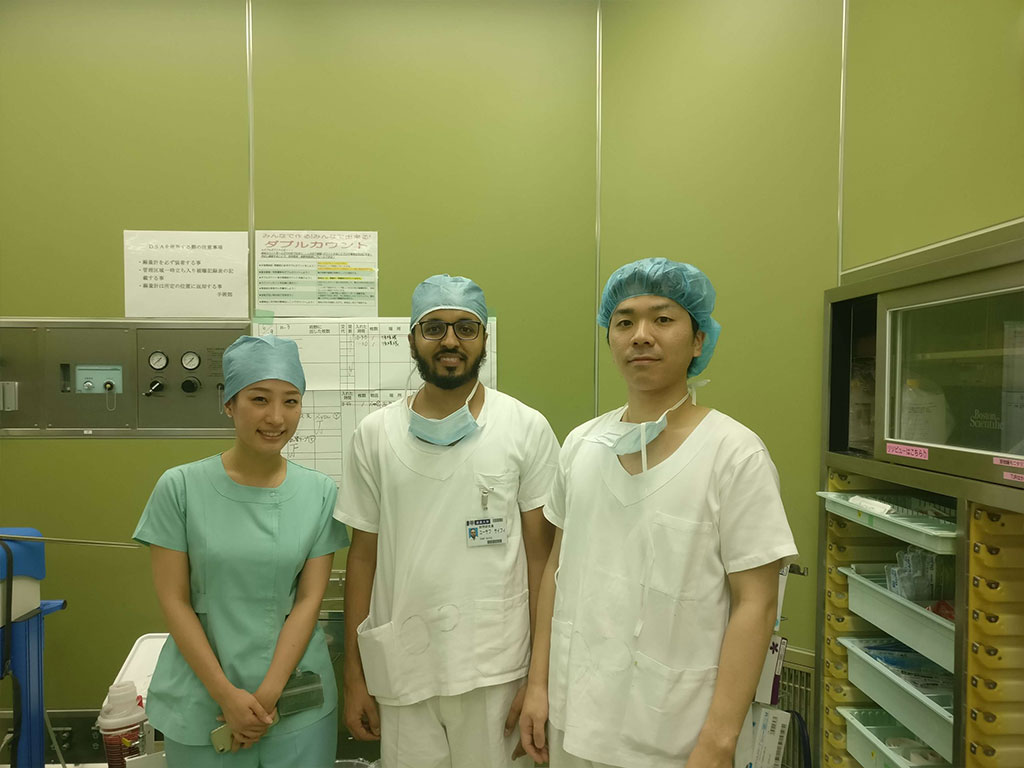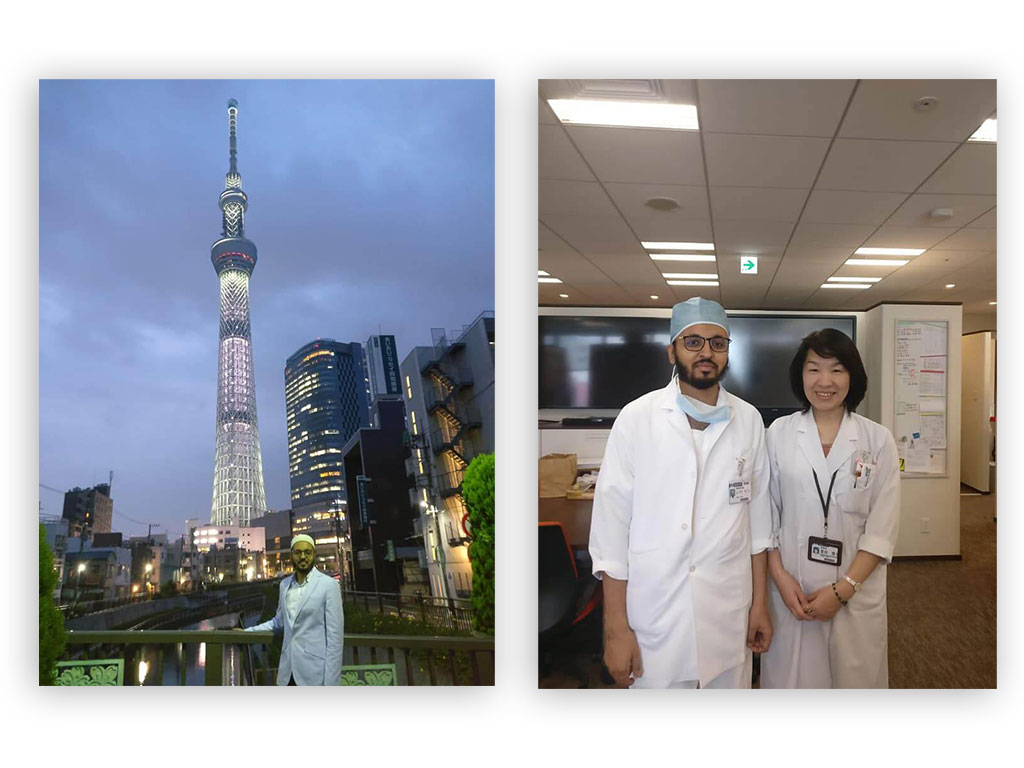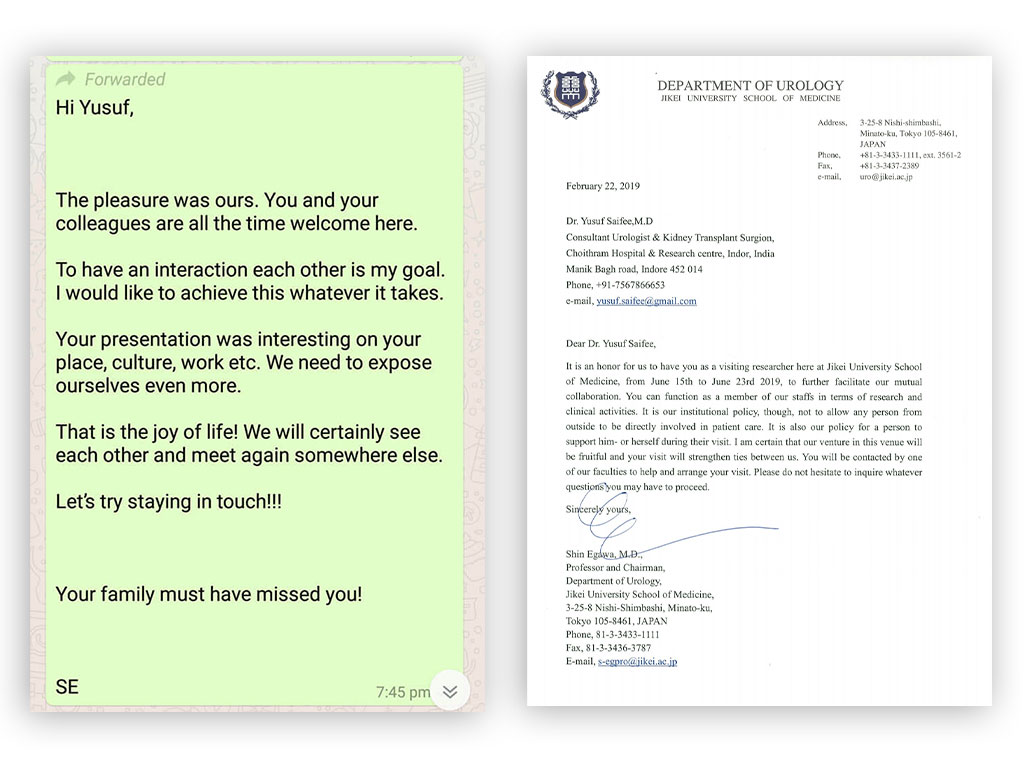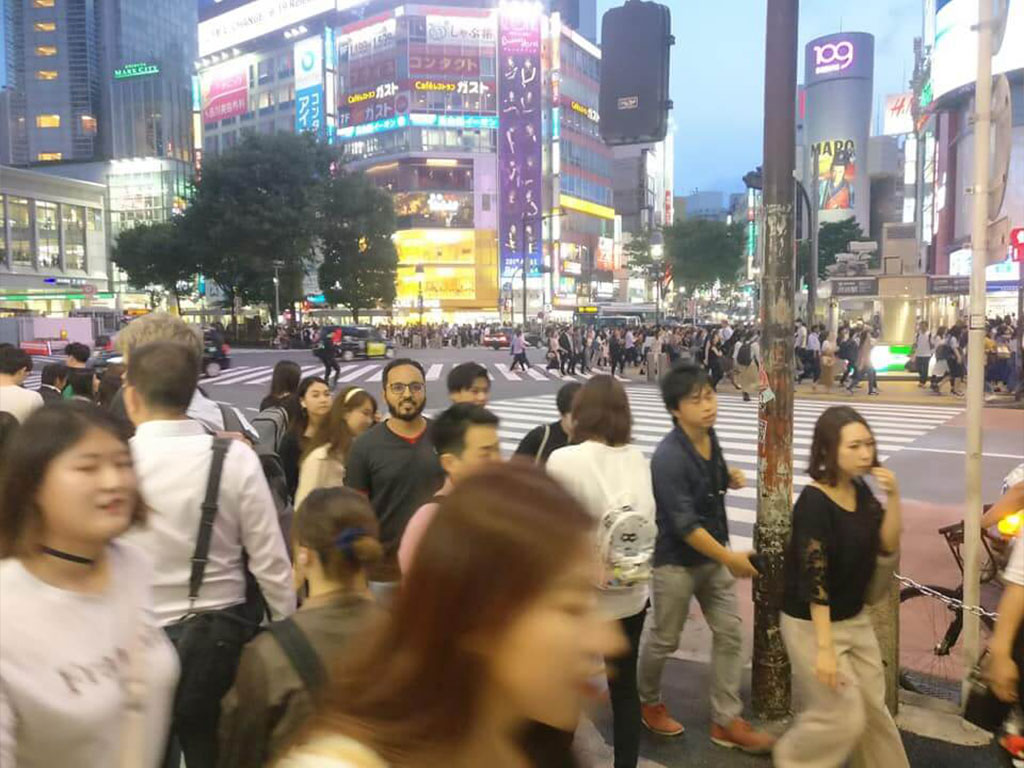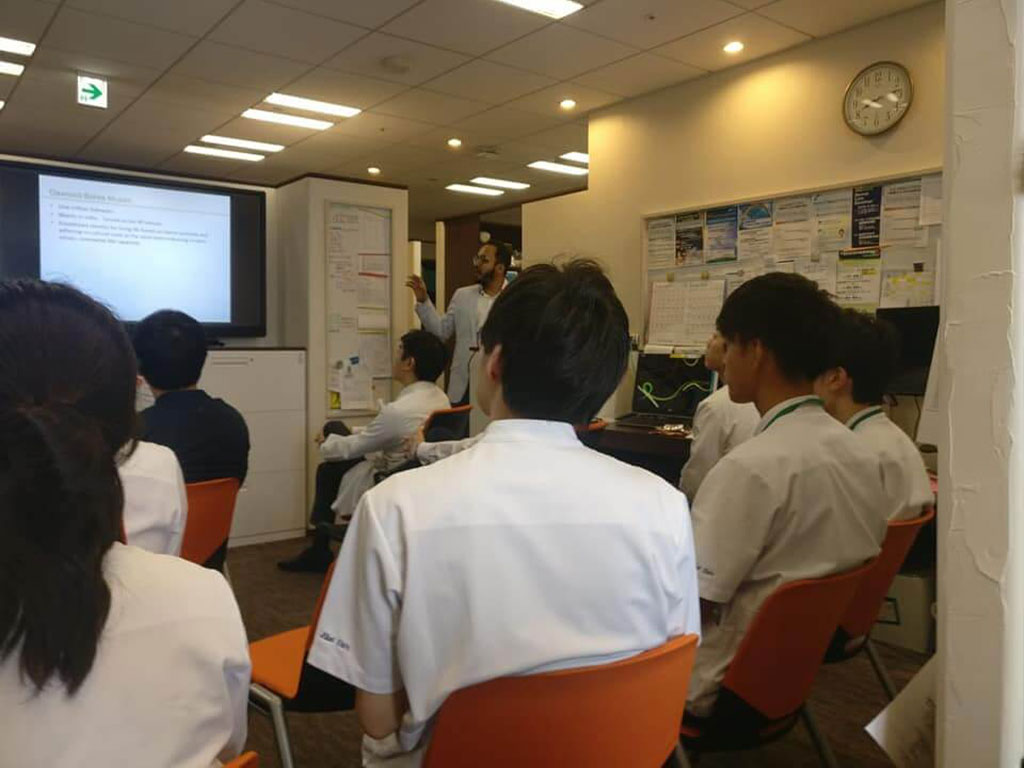The aim of this Multi-centre Randomized Controlled prospective study is to evaluate the effectiveness of simulation-based training in urology surgery. Simulation has the potential to provide such an environment, whereby surgeons can practice and master their craft on various forms of models and simulators as well fully immersive non-technical skills training. This has the potential to improve surgical competency and patient outcomes world-wide.
Guy's & St Thomas NHS- London
European Urological Scholarship Programme (EUSP)- Enhancing skills and Knowledge through European Schooling.Introduction
I, Dr. Yusuf Saifee from India was recently selected as one of the few urologists worldwide for the prestigious visiting European Association of Urology(EAU) fellow. In this review, I describe my experience and learnings from the visit to Guy’s and St Thomas’ Hospital NHS Foundation Trust, which is Mecca of Robotic Uro-oncological Surgery in the United Kingdom.
During my clinical visit, I got the opportunity to witness dozens of Robotic surgery, got extensive training on the surgical simulator and also received exposure in the latest scientific research. This fellowship served as a bridge to connect with the wider Urological fraternity and to gain a global perspective in Urology.
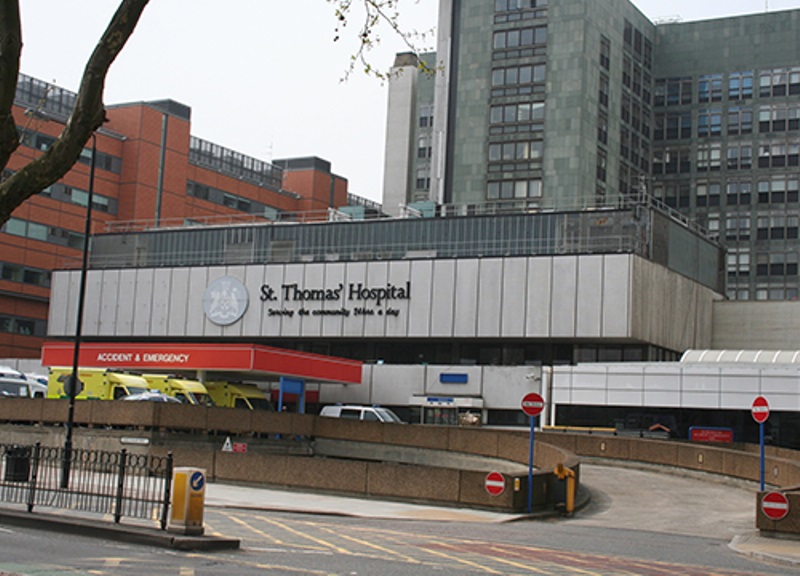
The Host Center
Guys Hospital, located in central London and founded in 1721, is one of the oldest and largest hospitals in the United Kingdom. The institute is world-famous for medical breakthroughs and innovation. Their staff continues to live up to these pioneering traditions through their commitment to clinical excellence and world-leading research.
The Urology Service at Guys Hospital is composed of six teams that cover every aspect of Urology. Professor Prokar Dasgupta is Chairman of the Institute of Robotic Surgery at Kings College London and Hon. Consultant Urological Surgeon at Guy’s and St Thomas’ Hospital NHS Foundation Trust. He pioneered robotic urological surgery within the UK
Clinical Visit and Surgical exposure
The first day I arrived in the hospital, I was warmly welcomed by Prof. Dasgupta, who showed me the department and operating rooms. I also met with the team and other robotic fellows. The fellows came from various countries – Australia, USA, Ireland, Egypt. They were all very friendly and the environment was certainly supportive.
I participated in the ongoing weekly activities in the department and clinical discussion about patient evaluation and management. The Multi disciplinary oncological meetings(MDT) discussed challenging cases and reached a decision on best treatment of patients.
Guys hospital is high volume tertiary care centre with 3-6 cases of robotic uro- oncological surgeries daily. Therefore, I could witness 100+ robotic surgeries in my clinical visit like robotic radical prostatectomy for prostate cancer, salvage robotic radical prostatectomy for recurrent prostate cancer(post RT), robotic radical cystectomy with intracorporeal conduit, robotic retroperitoneoscopeal / transperitoneal partial nephrectomy for renal cancer, robotic adrenalectomy for adrenal tumor and robotic ureterolysis for retroperitoneal fibrosis.
Training and Surgical simulation
Guys Hospital has two Da Vinci robots- one Si and one Xi system and both robots having a dual console. Dual console enables integrated teaching and provides fellows more surgical exposure which in turn may result in earlier proficiency.
Prof. Dasgupta is a wonderful mentor who explains every step and discusses the procedures in a clear and understandable manner. All other consultants were also very interactive during every surgical procedures.
What made my clinical visit even more valuable was the training on surgical simulators, where I could practice what I’ve seen at the operating theatre. Initially, I started with basic exercise like camera focusing, endowrist manipulation. needle driving, suturing etc. I noticed the improvement in my technique every day. Later on I also performed many simulated situations such as BN dissection, DVC ligation, NV Bundle preservation and vesicourethral anastomosis.
Research Exposure
Prostate Cancer
A multidisciplinary team of scientists and clinician-scientists are working on developing new therapies for the immunological treatment of prostate cancer. This involves a protein-based cytotoxic modification otherwise known as “tailing” which can kill cancer cells while reducing collateral damage. Major grants have led to the establishment of The Prostate Cancer Research Centre in 2014, of which Prof Dasgupta is the Chairman.
Clinical innovations
At Robotic lab, King’s College London, I got to know about the research on development of image guidance, 3D printing and indentation probes to improve the accuracy of robotic surgery in urological oncology. I saw use of “PROXIMIE ” during Robotic radical prostectomy. It is augmented reality technology to help surgeons receive remote assistance from experts anywhere in the world.
Simulation In Urological Training & Education (SIMULATE):
British Journal of urology international(BJUI)
I got the opportunity to visit BJUI office and understand publication and peer review process. Managing editor, Scott Millar explained the journey of BJUI in past decade which has led to growth of its impact factor(4.52)
Acknowledgments
Introduction
First of all, I would like to extend my heartfelt thanks to Urological Association of Asia for giving me the opportunity for a clinical visit at Jikei University School of Medicine, Tokyo, Japan. I believe that the opportunity to have dedicated training periods and academic exchange in renowned centers is one of the best ways to improve in a specific field. For that reason, the support of the Urological Association of Asia, with short clinical visits represents one of the most important ways of improving the level of urological care nowadays.
The Host center
Jikei University School of Medicine is the leading proponent of medical services in Japan for the last century. The Department of Urology of the Jikei University School of Medicine was established in 1922 as the first independent course of study in urology at a Japanese university. Thus in existence for over eighty years, it is the urology department with the longest history in Japan.
Dr. Shin Egawa is the Professor and Chairman, Department of Urology, Jikei University School of Medicine in Tokyo, Japan. As the Chair of International Committee of Japanese Urological Association and Director of Asian School of Urology of Urological Association of Asia, he has organized multiple international collaborative and joint workshops with the purpose of education especially for young urologists over the years. His main interest and expertise are in the field of uro-oncology, prostate cancer in particular. He is a skillful laparoscopic surgeon and has a keen interest in minimally invasive treatment in urology.
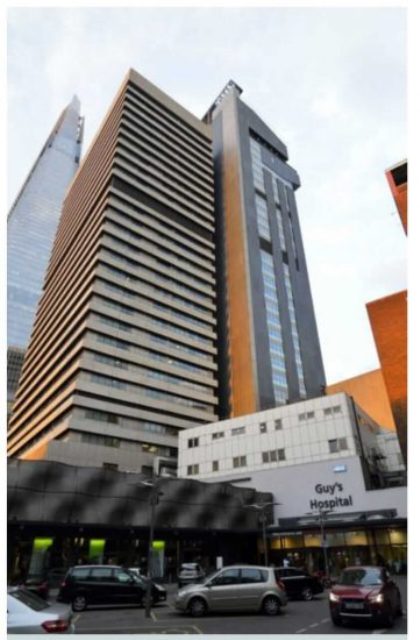
Presently, the Department of Urology, under Professor Egawa’s leadership, has 55 members (including 11 residents) serving at the Jikei University Hospital, three attached hospitals, and nine affiliated hospitals.
Experience
Jikei University School of Medicine is a well organized centre and takes good care of international guests. All the doctors and staff warmly welcomed me and were very kind and helpful.
I participated in the ongoing weekly activities in the department- Journal clubs, clinical discussion about patient evaluation and management. In my clinical visit, I had good surgical exposure at Jikei Hospital. Besides endourological surgeries, I observed many advanced urooncological surgeries like laparoscopic radical prostatectomy for prostate cancer, salvage laparoscopic radical prostatectomy for recurrent prostate cancer(post RT), retroperitoneoscopic partial nephrectomy for small renal cancer laparoscopic adrenalectomy for adrenal tumor, laparoscopic nephrectomy for renal cancer, laparoscope assisted nephroureterectomy for renal TCC. In India , we have been doing many of these laparoscopic surgeries at our centre but observing their approach and techniques and thereby learning additional tips and tricks was invaluable.
Although the highly skilled and experienced team of Urologists at Jikei can manage almost all uroncological surgeries laparoscopically, but to offer patients all latest minimally invasive treatment options, the department will be acquiring da vinci robotic surgical system soon.
I also got a chance to attend clinical meetings, grand rounds, diagnostic & therapeutic procedures like MRI-TRUS fusion guided prostate biopsy. One of the strength of this centre is the way they strive daily to serve patients with the most up-to-date medical treatment,firmly rooted in a relationship of mutual trust.
Lastly, no words enough for the affection, respect and hospitality by all doctors and staffs. I am really touched by highly skilled, hardworking disciplined and yet so down to earth Japanese. All in all, it was really a fantastic experience. I return to my home professionally and personally enriched.



